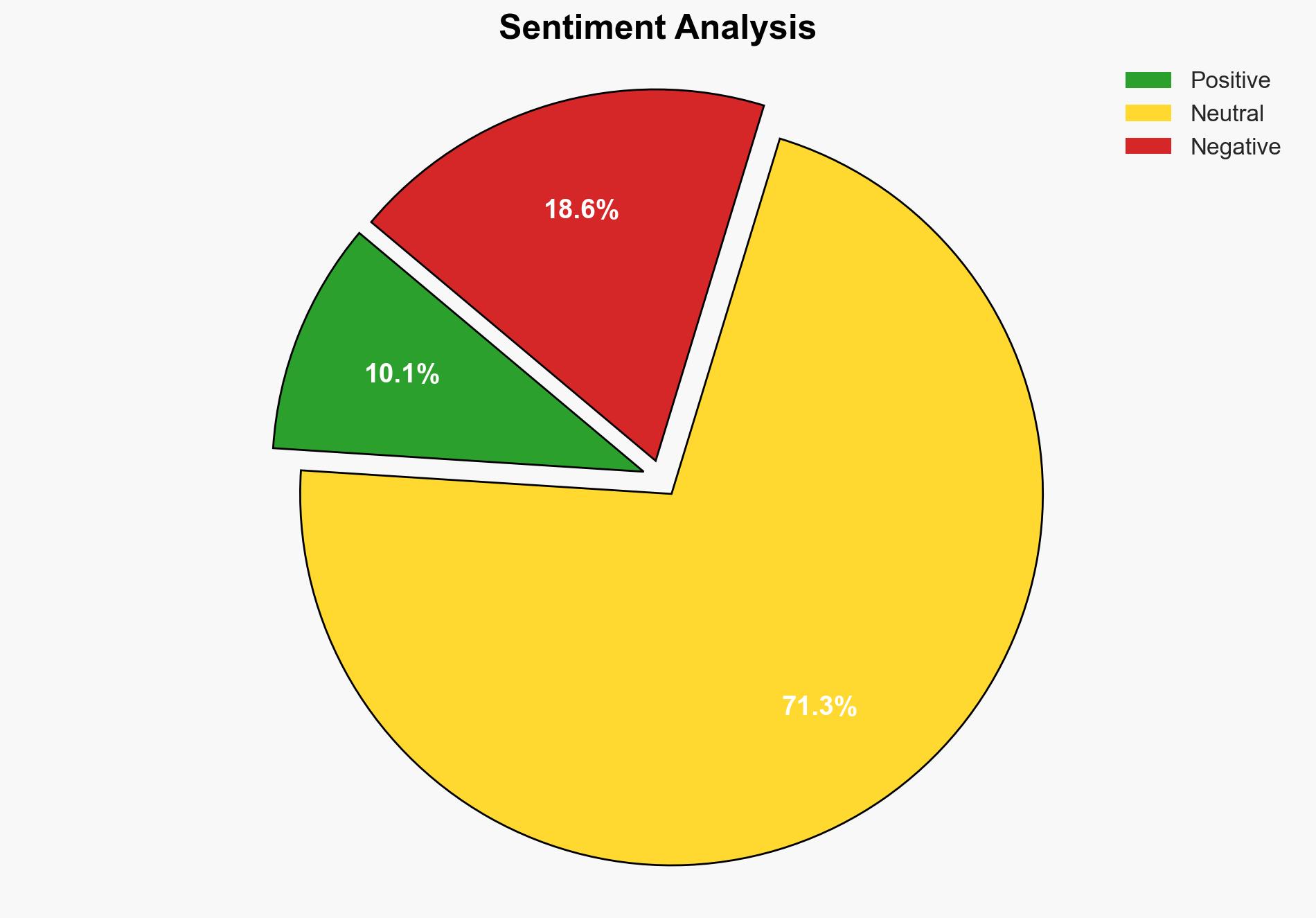Israel Resumes Ground Operations in Gaza – OilPrice.com
Published on: 2025-03-21
Intelligence Report: Israel Resumes Ground Operations in Gaza – OilPrice.com
1. BLUF (Bottom Line Up Front)
Israel has resumed ground operations in Gaza, effectively abandoning a ceasefire deal. This escalation is expected to increase volatility in oil prices due to heightened regional instability. Hamas is scheduled to arrive in Cairo to attempt to revive ceasefire talks. Concurrently, Iranian-backed militias in Iraq have been authorized to resume attacks on forces in Iraq and Syria, contingent upon the U.S. failing to withdraw troops by the end of the year. These developments pose significant risks to regional stability and global economic interests.
2. Detailed Analysis
The following structured analytic techniques have been applied for this analysis:
General Analysis
The resumption of ground operations by Israel in Gaza marks a significant escalation in the conflict, likely leading to increased casualties and further destabilization of the region. This action undermines previous ceasefire efforts and complicates diplomatic negotiations. The involvement of Iranian-backed militias in Iraq and Syria further exacerbates tensions, potentially drawing in additional regional actors and complicating U.S. strategic interests in the Middle East. The impact on oil prices is anticipated to be significant, with potential disruptions in supply chains and increased market volatility.
3. Implications and Strategic Risks
The continuation of hostilities in Gaza and the potential for increased Iranian influence in Iraq pose substantial risks to regional stability. The potential for a broader conflict involving multiple state and non-state actors could lead to significant disruptions in global oil markets, affecting economic interests worldwide. The risk of retaliatory actions and further escalation remains high, with potential impacts on national security and international diplomatic relations.
4. Recommendations and Outlook
Recommendations:
- Engage in diplomatic efforts to de-escalate tensions and revive ceasefire negotiations between Israel and Hamas.
- Monitor Iranian-backed militia activities closely and prepare contingency plans for potential escalations in Iraq and Syria.
- Consider regulatory measures to stabilize oil markets and mitigate economic impacts.
Outlook:
Best-case scenario: Successful diplomatic interventions lead to a renewed ceasefire in Gaza and de-escalation of tensions in Iraq and Syria, stabilizing oil markets.
Worst-case scenario: Continued hostilities in Gaza and increased Iranian influence in Iraq lead to a broader regional conflict, severely disrupting oil supplies and global economic stability.
Most likely outcome: Prolonged conflict with intermittent ceasefire attempts, resulting in sustained volatility in the region and global oil markets.
5. Key Individuals and Entities
The report mentions significant individuals and organizations, including Netanyahu, Hamas, and Iranian-backed militias. These actors play critical roles in the ongoing developments and their actions will significantly influence future outcomes.




